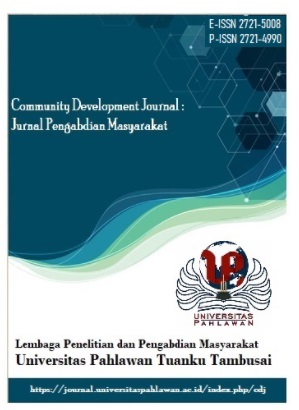KEPEMIMPINAN PELATIH DALAM MEMBANGUN TIM VOLI YANG SUKSES
DOI:
https://doi.org/10.31004/jrpp.v7i4.35859Keywords:
Voli, Kepemimpinan, Motivasi.Abstract
Penelitian ini mengeksplorasi pengaruh kepemimpinan pelatih terhadap motivasi dan kinerja tim voli. Dengan menggunakan pendekatan kualitatif melalui wawancara dan observasi, penelitian ini mengidentifikasi bahwa gaya kepemimpinan yang diterapkan oleh pelatih memiliki dampak signifikan terhadap suasana tim dan performa pemain. Pelatih yang menerapkan gaya kepemimpinan transformasional dan partisipatif berhasil menciptakan lingkungan yang positif, meningkatkan keterlibatan dan komitmen pemain. Umpan balik positif serta dukungan emosional dari pelatih terbukti berkontribusi pada peningkatan performa tim. Sebaliknya, gaya kepemimpinan otoriter dapat menekan motivasi pemain, yang berdampak negatif pada kinerja tim. Penelitian ini menekankan pentingnya pendekatan adaptif dalam pelatihan dan pengembangan budaya tim yang positif. Meskipun memberikan wawasan berharga mengenai praktik kepelatihan yang efektif, penelitian ini memiliki keterbatasan, seperti ukuran sampel yang kecil, yang menunjukkan perlunya penelitian lebih lanjut untuk eksplorasi yang lebih luas. Hasil dari penelitian ini diharapkan dapat memberikan panduan bagi pelatih dalam mengembangkan strategi kepemimpinan yang lebih efektif untuk meningkatkan motivasi dan kinerja tim voli.References
Bandura, A. (1977). Social Learning Theory. Englewood Cliffs, NJ: Prentice Hall.
Bandura, A. (2001). Social Cognitive Theory: An Agentic Perspective. Annual Review of
Psychology, 52(1), 1-26.
Bass, B. M. (1985). Leadership and Performance Beyond Expectations. New York: Free Press.
Carron, A. V., Brawley, L. R., & Widmeyer, W. N. (2002). The Measurement of Cohesion in Sport
Teams: The Group Environment Questionnaire. In J. M. Silva & D. E. Stevens (Eds.), Psychology of Sport: Perspectives and Applications (pp. 213-226). Boston: McGraw-Hill.
Chelladurai, P., & Riemer, H. A. (1998). Consensus in Coaching: A Multidimensional Approach
to Coaching Effectiveness. International Journal of Sports Science & Coaching, 3(3)
Chelladurai, P. (2001). Human Resource Management in Sport and Recreation. Champaign, IL:
Human Kinetics.
Côté, J., & Gilbert, W. (2009). An Integrative Approach to Coaching Effectiveness. International
Journal of Sports Science & Coaching, 4(3), 307-319
Cushion, C. J., Harvey, S., Muir, B., & Nelson, L. (2010). Locating the ‘Coaching’ in Coach
Education: A Sociocultural Perspective. International Journal of Sports Science & Coaching.
Goudas, M., & Giannoudis, M. (2008). An Examination of the Motivational Climate in Sport.
Psychology of Sport and Exercise, 9(1), 81-93.
Jones, R. L., Armour, K. M., & Potrac, P. (2011). Sports Coaching Cultures: From Practice to
Theory. Abingdon: Routledge.
Martens, R. (2004). Successful Coaching (3rd ed.). Champaign, IL: Human Kinetics.
Martindale, R. J. J., Collins, D., & Abraham, A. (2007). Talent Development: A Guide for Practice
and Research. International Journal of Sports Science & Coaching, 2(3), 255-264.
Poczwardowski, A., & Sherman, C. (2014). Coaching and Team Development: A Social-
Relational Perspective. International Journal of Sports Science & Coaching, 9(2), 301-313.
Renshaw, I., Chow, J. Y., Davids, K., & Hammond, T. (2010). The Role of the Coach in the
Development of Expertise in Sports. International Journal of Sports Science & Coaching, 5(3).
Schempp, P. G., & Grillon, C. (2011). The Role of Coaches in the Development of Expertise.
Journal of Sport Psychology in Action, 2(1), 27-37.
Smith, R. E., Smoll, F. L., & Cumming, S. P. (2016). Effects of Coaching Behavior on Children's
Sport Performance and Enjoyment. Journal of Sport & Exercise Psychology, 38(2), 121-133.
Thompson, R. A. (2011). The Coach-Athlete Relationship: A Review of the Literature.
International Journal of Sports Science & Coaching, 6(2), 215-230.
Vallerand, R. J., & Losier, G. F. (1999). An Integrative Analysis of Intrinsic and Extrinsic
Motivation in Sport. Journal of Applied Sport Psychology, 11(1), 142-169.
Weiss, M. R., & Chaumeton, N. R. (1992). Motivation in Sport. In T. S. Horn (Ed.), Advances in
Sport Psychology (pp. 115-156). Champaign, IL: Human Kinetics.
Zourbanos, N., Tsorbatzoudis, H., & Koutoufas, K. (2009). Coaching Effectiveness: The Role of
Coach-Athlete Relationship and Coaching Style. International Journal of Sport Science & Coaching, 4(2), 189-199.
Downloads
Published
How to Cite
Issue
Section
License
Copyright (c) 2024 Toto Hariono Tumanggor

This work is licensed under a Creative Commons Attribution-ShareAlike 4.0 International License.






